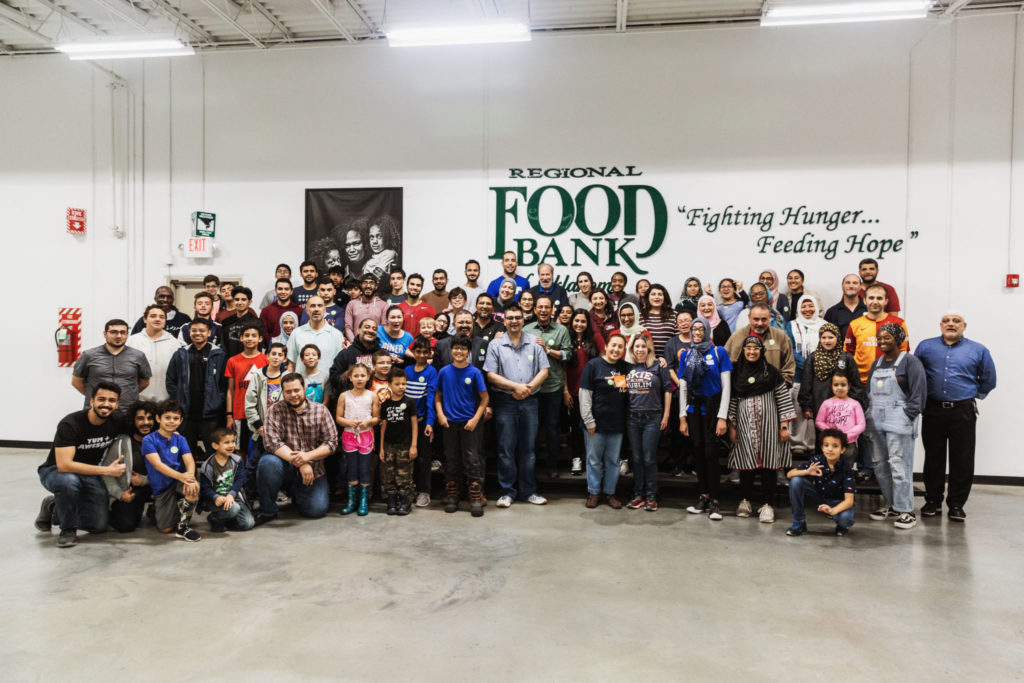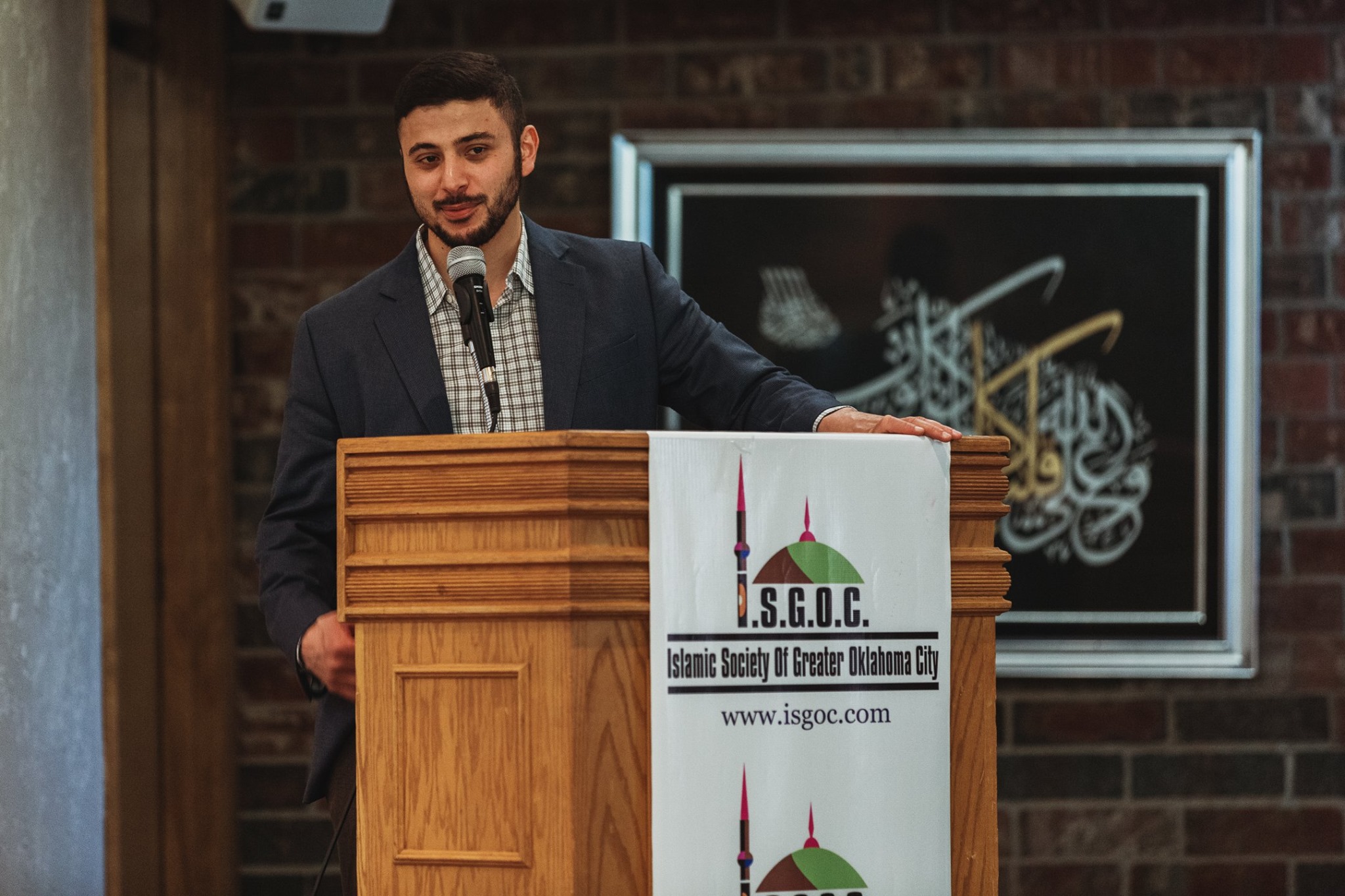Oklahoma’s Muslim community celebrated the end of the month-long fast of Ramadan this morning with prayer services around the state, ushering in the holiday of Eid ul-Fitr with a message of peace and charity.
Ramadan is the month on the Islamic lunar calendar during which Muslims abstain from food, drink and “other sensual pleasures” from dawn to sunset, according to Council on American-Islamic Relations of Oklahoma (CAIR-OK). The end of the month-long fast is marked with prayers at Eid ul-Fitr, or the “feast of fast breaking” holiday.
Adam Soltani, executive director of CAIR-OK, said security concerns were high in Oklahoma’s Muslim community this Ramadan, in the wake of the March mosque shootings in Christchurch, New Zealand, which claimed more than 50 lives, and a mosque fire May 12 in New Haven, Conn., which was found to be arson.
“Safety and security were at the height of concern for a lot of the Muslims in the state,” Soltani said. “But, I’m happy to say there were no reports of violence or hate crimes at any of the Islamic societies in the state during Ramadan. That’s something certainly to the credit of the people in Oklahoma, is people generally try to look out for and take care of each other.”
Despite the early security concerns, Soltani said this Ramadan proved to be a fruitful period of inter-faith dialogue, with thousands of people of other faiths joining Muslims for worship services and iftars — an evening meal that breaks the daily fast.
“It has served as a reminder that we are all in this together,” Soltani said, “that one of the things we all have in common, and we should focus on, is our common humanity, and these are great opportunities to expand our dialogue and understanding.”
That spirit of peace and greater understanding has gone hand-in-hand with Ramadan’s central theme of charity to those in need, said Imam Imad Enchassi, lead imam and president of Islamic Society of Greater Oklahoma City (ISGOC).
“In Ramadan we focus quite a bit on spirituality and charity,” Enchassi said. “That is a global theme in Ramadan.”
He said it’s common for many mosques to raise 90 percent of their charitable giving for the year during Ramadan, with each Muslim expected to give 2.5 percent of their net worth to charity annually.
Enchassi said Islamic principles of charity require charitable donations to be used locally, as much as possible, unless there is a large disaster that calls for international or regional giving.
This Ramadan, Enchassi said ISGOC families focused their giving on the food pantry, free clinic and women’s shelter at the Mercy Mission Surayya Anne Foundation, adjacent to the ISGOC campus in Oklahoma City. Donations also have gone to orphan relief and to water well projects in Africa.
Mikael Bryant, originally from Enid and a board member with CAIR-OK, said that spirit of giving was reinforced as he adapted to the fasting of Ramadan, while going through the process of converting to the faith.
His first attempt at fasting was during a summer break from college, while working as a waiter at the Oakwood Country Club pool.
At first, he said it was hard not to focus on his own thirst, the heat and his hunger.
“Over the years, as I’ve gotten used to fasting, it’s made me more sympathetic to others,” Bryant said. “I think less about my own thirst and hunger and more about those who are always in that state.”
Now, he said fasting gives a whole new meaning to acts of charity during Ramadan.
“There’s no better feeling than giving someone food or water when you can’t have it,” Bryant said. “It’s a very profound feeling.
“As we fast for these 30 days, you really start to feel sympathy and empathy for what we have, and what others don’t have,” he said. “You just feel that thankfulness for what God has given us, which is the provision to live.”
That sense of empathy breaks down divisions of faith and leads to a sense of unity with all people, Bryant said.
“In Ramadan, you don’t look at others who don’t have enough to eat or drink and see them as Muslim or not Muslim,” he said. “You just see them as people, and Ramadan just helps you to better see those in need around us.”
Sikandar Mesiya, M.D., with Islamic Society of Edmond, said Ramadan serves as “an exercise of self-control and patience” meant to make the faithful more compassionate toward their neighbors, of all faiths.
“Ramadan gives us training to become a better human and to provide better care for other humans,” Mesiya said, “and my hope is that this exercise of Ramadan, of self-control and patience, translates to the betterment of the community at-large.”
With those lessons reinforced, Mesiya said Ramadan ends at Eid ul-Fitr in a festive spirit, when Muslims of every walk of life and culture come together to “just have a good family time … a joyous day of celebration and family.”
Enchassi marked the beginning of Eid ul-Fitr this morning with a sermon meant to translate that celebration into continued building of bridges between people of all faiths and backgrounds.
“I am speaking about repelling hate with love and how that formula is the only formula for American Muslims going forward,” Enchassi said. “In the spirit of all people of faith, that’s a formula that has been taught by Moses, Jesus and Muhammad.”


